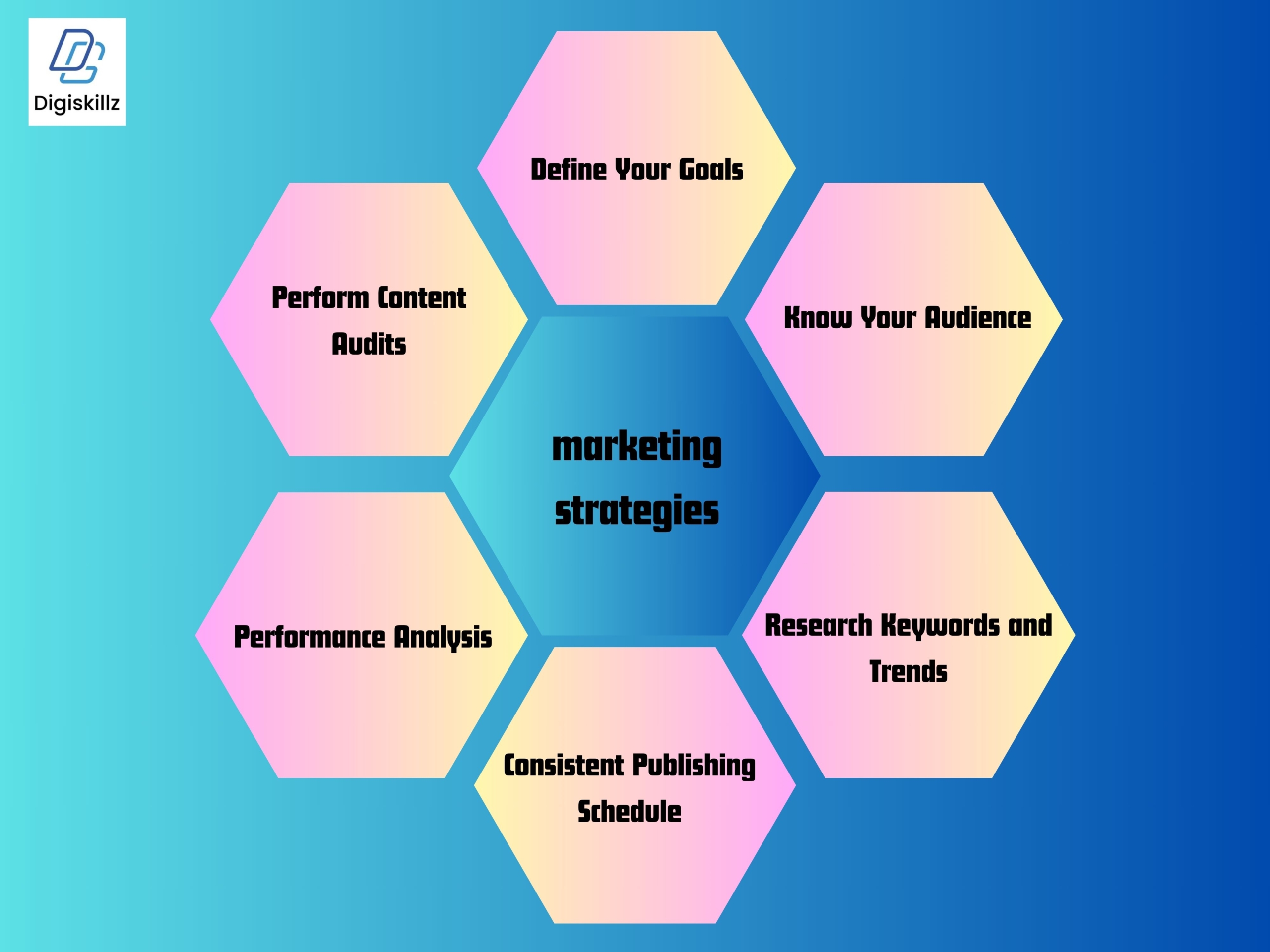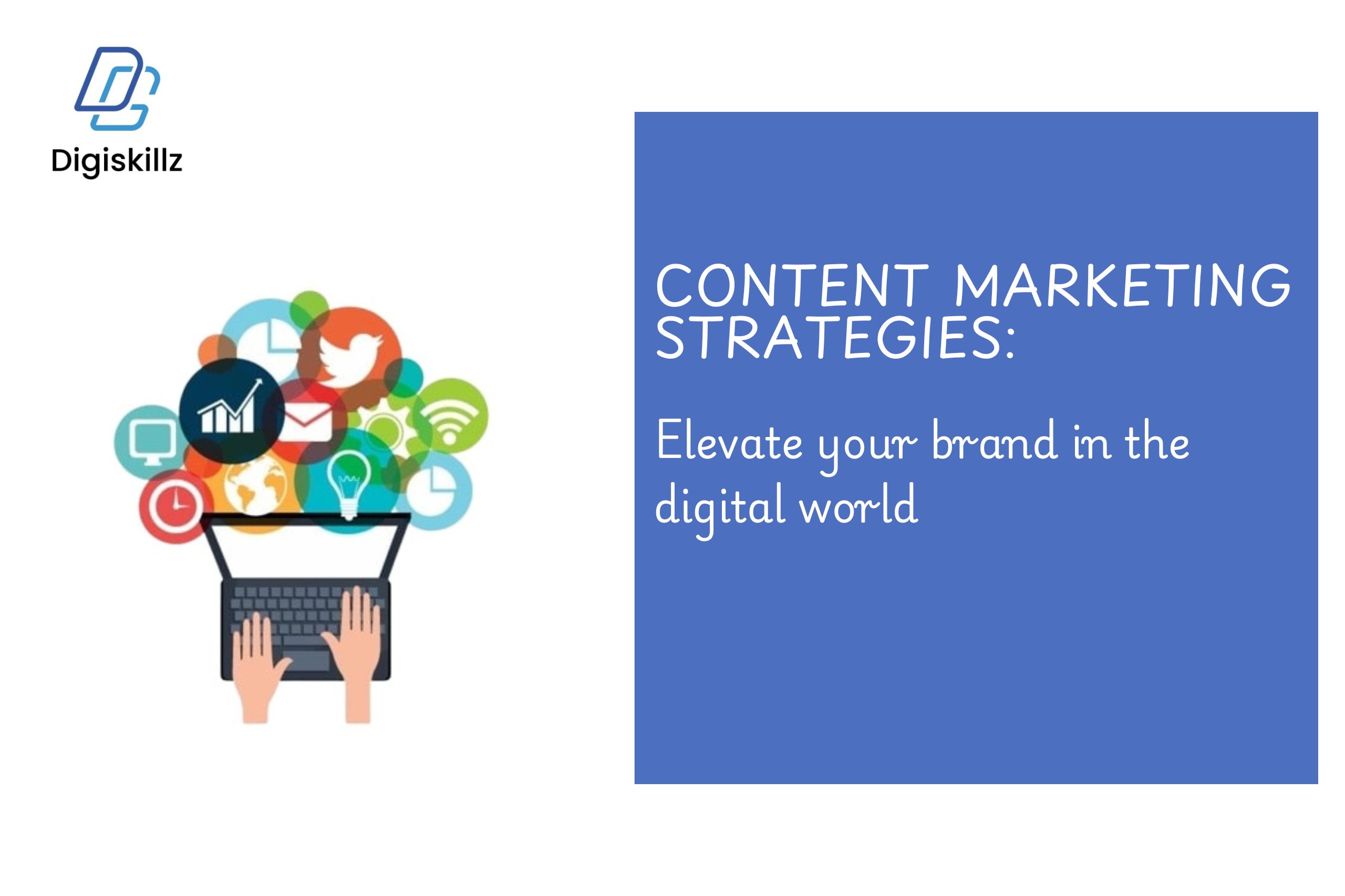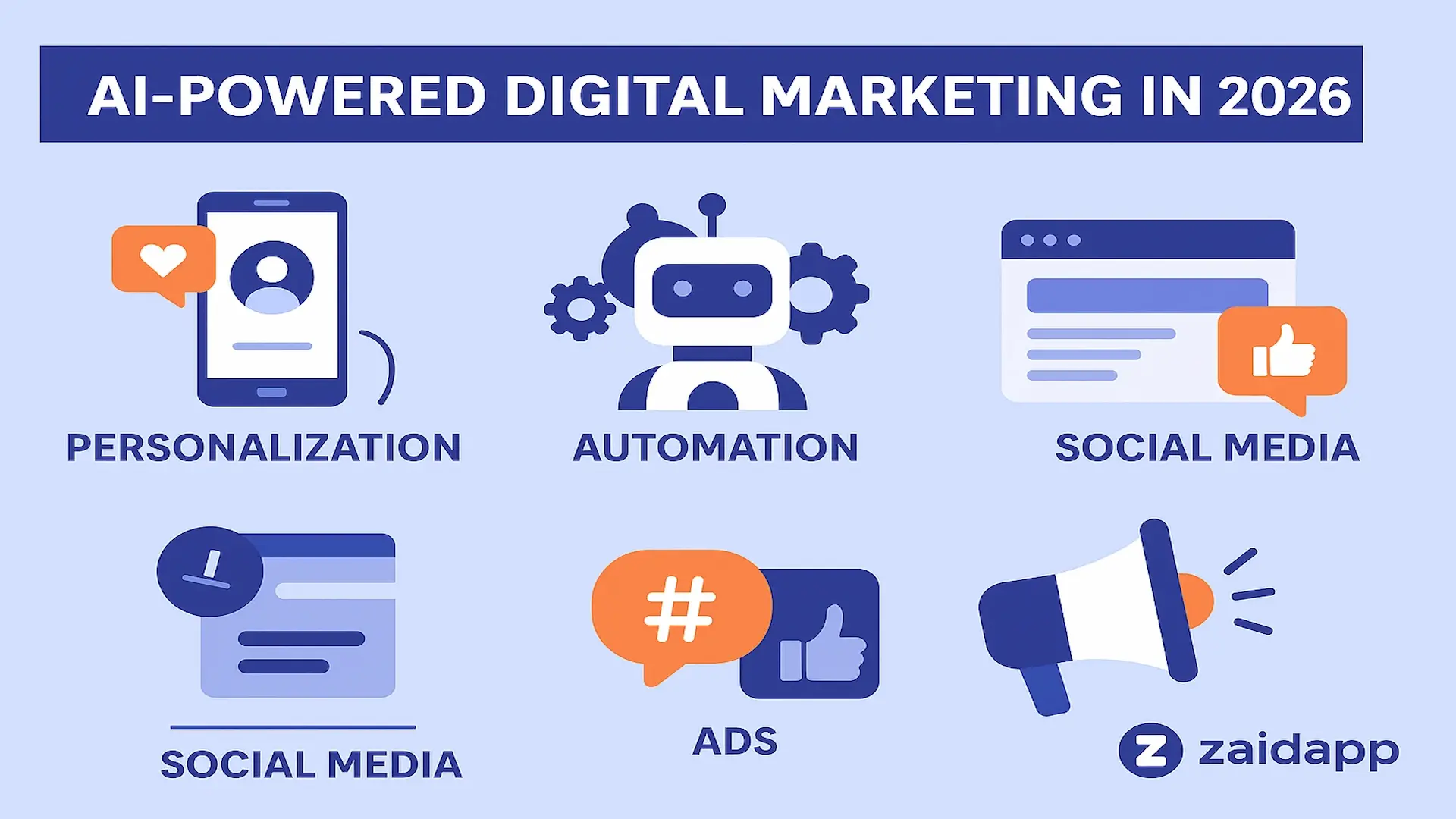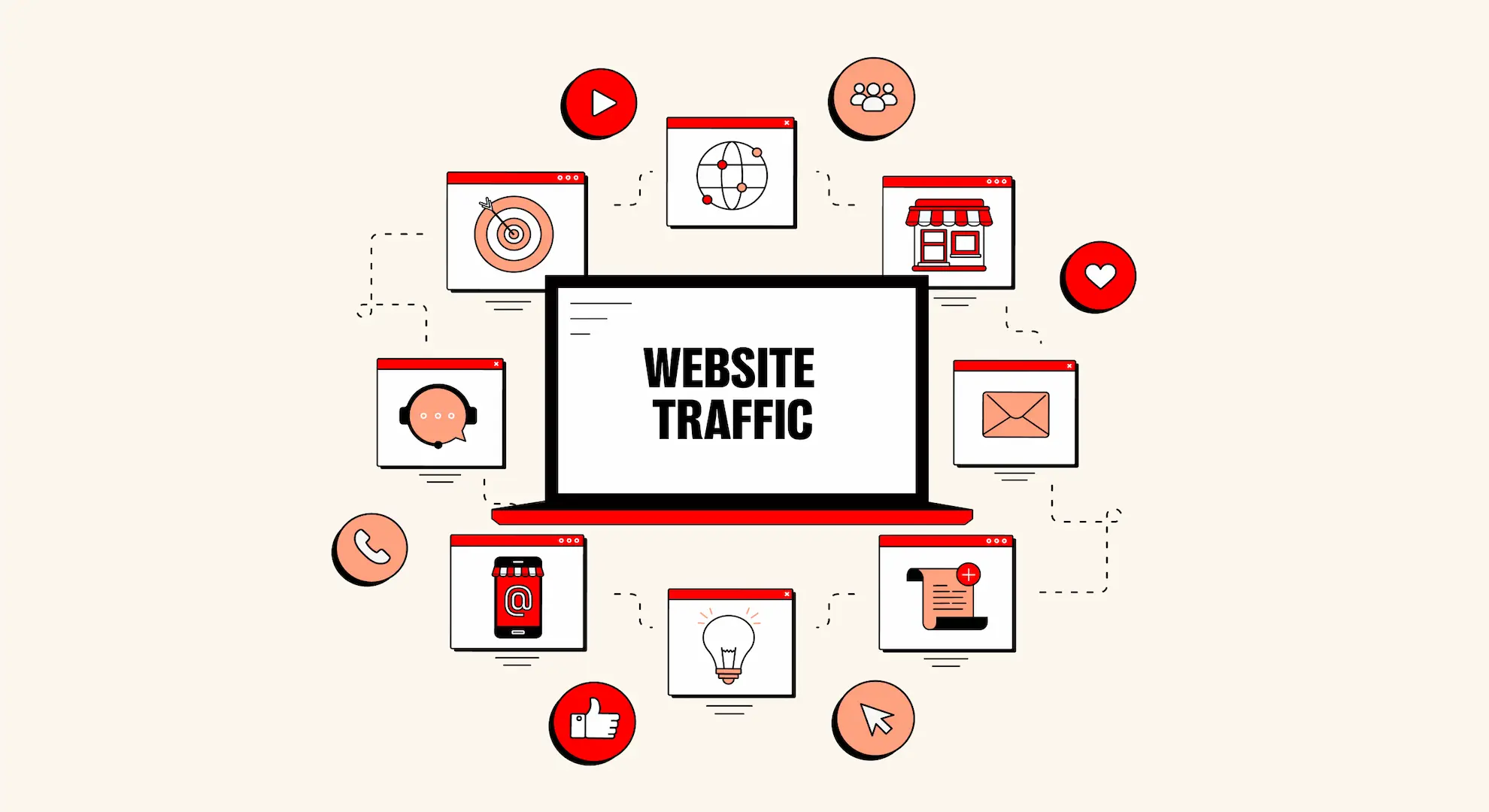In today’s fast-paced digital world, content is the driving force behind effective marketing campaigns. Brands are constantly competing for attention, and a strong content marketing strategy can make all the difference. From enhancing brand visibility to building trust and generating leads, content marketing strategies play a crucial role in determining your business’s success. This comprehensive guide will explore various content marketing strategies that can elevate your brand, attract the right audience, and ultimately boost conversions.
Table of Contents
Why Content Marketing Matters
Content marketing has emerged as one of the most powerful ways to communicate with potential customers. Unlike traditional advertising, which can sometimes feel intrusive, content marketing offers value to users by educating, informing, and engaging them. Implementing the right content marketing strategies enables brands to position themselves as thought leaders, build credibility, and foster deeper relationships with their target audience.
Key Benefits of Content Marketing:

- Brand Awareness and Visibility: By consistently producing high-quality, valuable content, brands can increase their visibility and establish a strong online presence.
- SEO and Organic Traffic: Well-optimized content can significantly boost search engine rankings, making it easier for potential customers to find your business.
- Lead Generation: Content like eBooks, whitepapers, and webinars can attract leads who are genuinely interested in your products or services.
- Customer Retention: Engaging content helps keep your audience hooked, fostering loyalty and encouraging repeat business.
- Cost-Effectiveness: Compared to other marketing methods, content marketing can provide substantial returns at a relatively low cost.
Understanding the Types of Content Marketing Strategies
There are several types of content marketing strategies that you can use to elevate your brand in the digital world. Whether it’s blog posts, social media content, video marketing, or podcasts, each format has its own unique strengths. The key is to choose the right mix based on your audience, industry, and business goals.
- Blogging: Blogging remains a cornerstone of content marketing strategies. Regular blog posts help in SEO, provide valuable information to your audience, and establish your brand as a thought leader in your niche.
- Video Marketing: With platforms like YouTube and TikTok gaining massive popularity, video content has become an indispensable part of content marketing strategies. Videos can simplify complex information, showcase products, and provide a more personal connection with your audience.
- Infographics: Infographics combine visuals and information to present data or processes in an easy-to-understand format. They are highly shareable and great for driving engagement.
- Social Media Content: Platforms like Instagram, LinkedIn, and Facebook allow brands to connect with their audience on a more personal level. The right social media content marketing strategies can amplify your reach and foster a community around your brand.
- Podcasts: Audio content has been gaining traction as people prefer consuming content on the go. Podcasts offer a unique way to engage with your audience through interviews, storytelling, or deep dives into industry topics.
- eBooks and Whitepapers: Long-form content such as eBooks and whitepapers are excellent tools for demonstrating expertise and capturing leads. These formats are ideal for in-depth explorations of complex topics.
Developing a Successful Content Marketing Strategy

Creating successful content marketing strategies involves more than just producing content. You must have a clear understanding of your audience, clear goals, and a distribution strategy that works. Here’s a step-by-step approach to building a content marketing strategy that works:
1. Define Your Goals
Before you begin creating content, it’s crucial to define what you want to achieve. Are you looking to increase brand awareness, drive more traffic to your website, generate leads, or boost customer engagement? Each goal will influence the type of content you create and the platforms you use.
2. Know Your Audience
Understanding your target audience is the foundation of effective content marketing strategies. Create detailed buyer personas to understand your audience’s demographics, preferences, pain points, and behavior patterns. As a result, you will be able to tailor your content to their specific preferences and needs.
3. Perform Content Audits
If you’ve been producing content for a while, conducting a content audit can help identify what’s working and what’s not. Analyze the performance of your existing content to determine which pieces resonate most with your audience. Future content marketing strategies can be informed by this data.
4. Research Keywords and Trends

Keywords are an integral part of content marketing strategies. Conduct keyword research to find out what topics your audience is searching for and create content around those topics. Tools like Google Keyword Planner, Ahrefs, and SEMrush can provide insights into trending keywords and content ideas.
5. Create a Content Plan
A content plan outlines what content you will create, when it will be published, and on which channels it will be distributed. The plan should include content topics, formats, and publishing schedules. This will ensure consistency and help in tracking your progress over time.
6. Optimize Content for SEO
SEO optimization is key to making your content discoverable. Incorporate relevant keywords naturally, use compelling meta descriptions, optimize your images, and focus on creating high-quality, valuable content that addresses the needs of your audience. These steps will ensure your content ranks higher on search engines.
7. Promote Your Content
Creating content is only half the battle. Effective promotion is essential for maximizing reach. Use a mix of organic and paid promotion tactics, such as sharing your content on social media, sending it out via email newsletters, and investing in PPC campaigns. Collaborating with influencers or other brands can also help amplify your content marketing strategies.
8. Measure and Adjust
Continuous improvement depends on analyzing your content’s performance. Use tools like Google Analytics to track metrics such as traffic, engagement, and conversions. Regularly assess which content marketing strategies are yielding the best results and tweak your strategy accordingly.
Advanced Content Marketing Strategies for Elevating Your Brand

To truly stand out, you need to go beyond basic content marketing strategies. Here are some advanced techniques that can take your content marketing efforts to the next level:
1. Utilize Data-Driven Content
Leverage analytics and customer data to create highly targeted content. Use data to understand what types of content perform best, identify gaps in your strategy, and uncover new opportunities. Data-driven content marketing strategies enable you to create content that resonates deeply with your audience.
2. Repurpose High-Performing Content
One of the most efficient content marketing strategies is repurposing existing content. Turn a successful blog post into an infographic, video, or social media post. Repurposing extends the life of your content and helps you reach a broader audience.
3. Implement User-Generated Content
Get your audience involved by asking them to leave reviews, testimonials, or posts on social media. User-generated content not only boosts credibility but also helps build a sense of community around your brand.
4. Experiment with Interactive Content
Interactive content, such as quizzes, polls, and calculators, engages users in a more immersive way. These types of content marketing strategies are highly shareable and can significantly increase user engagement.
5. Leverage AI and Automation

Incorporating AI and automation into your content marketing strategies can streamline processes and provide personalized content experiences. Use AI tools for content creation, personalization, and even for analyzing content performance.
6. Focus on Video SEO
With the rise of video content, optimizing for video SEO has become essential. Make sure your title, description, and tags contain keywords. Adding transcripts and captions can also improve accessibility and boost your video’s search engine visibility.
7. Create Evergreen Content
Content that remains relevant over time will continue to attract traffic and engagement. Topics such as “how-to” guides, industry best practices, and comprehensive tutorials are examples of evergreen content marketing strategies.
Final Thoughts
Implementing effective content marketing strategies is key to elevating your brand in the digital world. From understanding your audience to optimizing for SEO and exploring advanced techniques, a well-executed strategy can position your brand as a leader in your industry. Remember to stay flexible, continuously measure your results, and refine your strategy to meet changing audience needs.
By investing time and effort into refining your content marketing strategies, you can drive significant business growth, build lasting relationships with your audience, and ensure your brand stands out in a crowded digital landscape.
Author-Shenin CR
Learner of DigiSkillz, Digital Marketing Institute in Kochi.











Leave A Comment